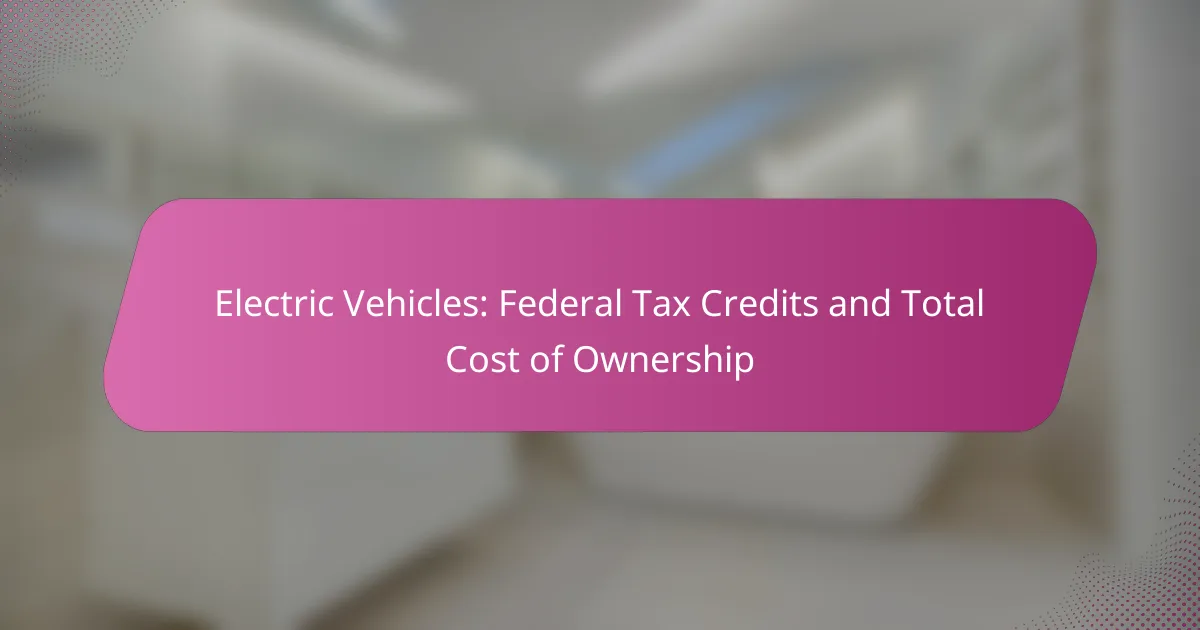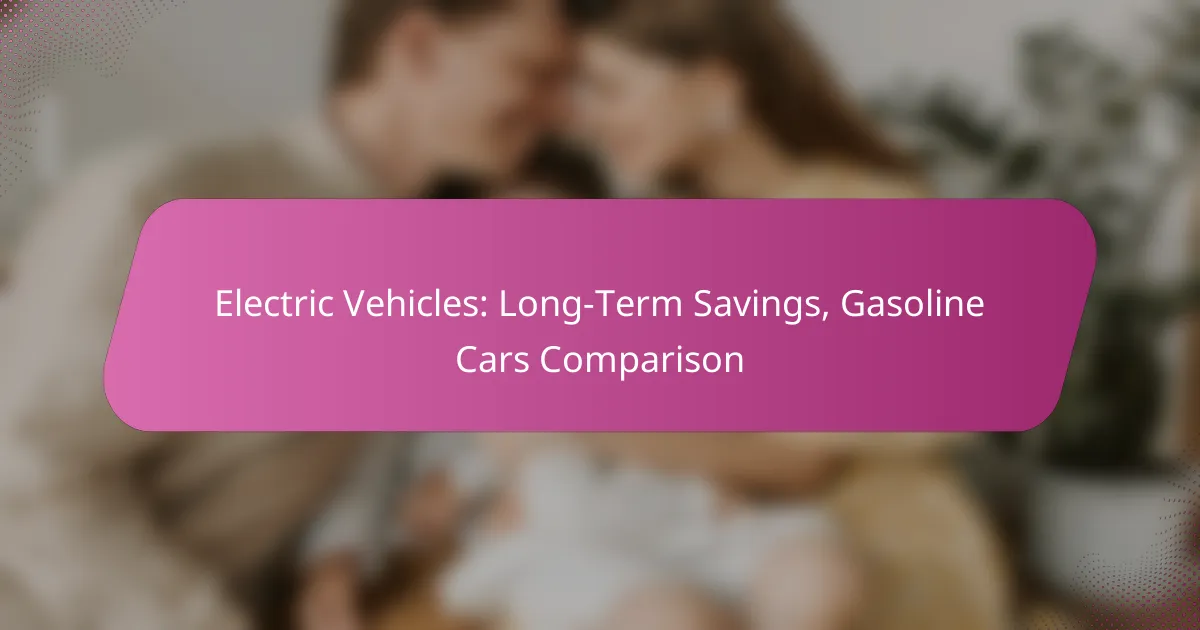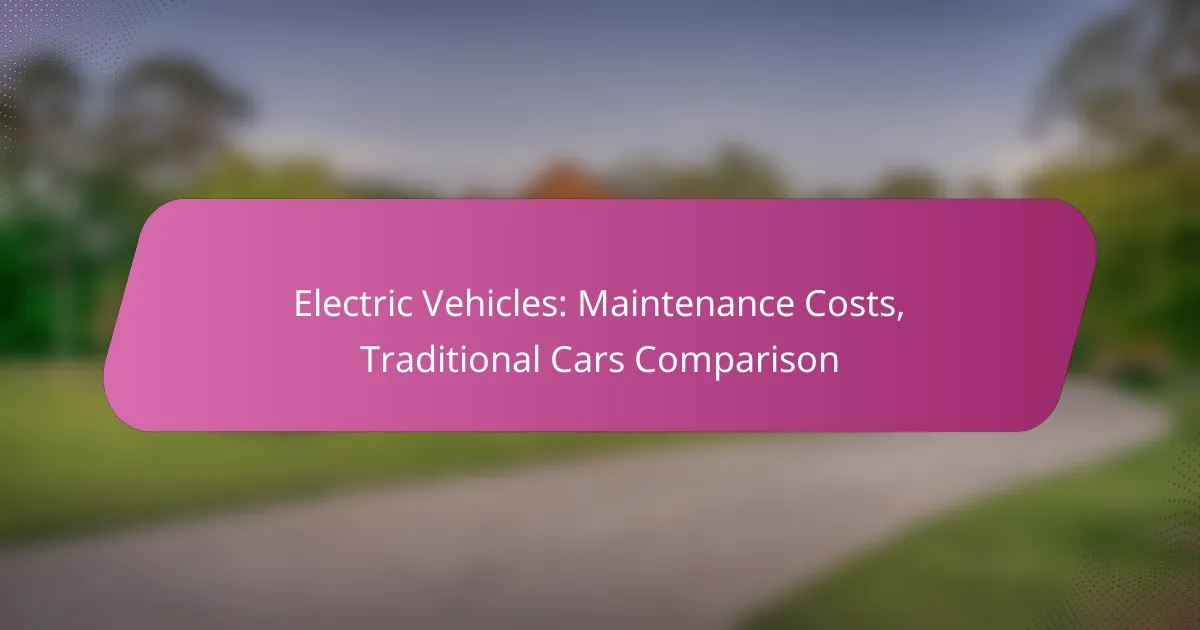As electric vehicles (EVs) gain popularity, understanding their insurance costs and overall expenses becomes crucial for potential buyers. Insurance premiums for EVs typically range from $1,000 to $2,000 annually, influenced by factors such as the vehicle model and driver profile. While EVs may incur higher repair costs, some insurers offer discounts for eco-friendly vehicles, making it essential to compare policies. Additionally, prospective owners should consider the initial purchase price, charging costs, and maintenance expenses to make informed investment decisions.
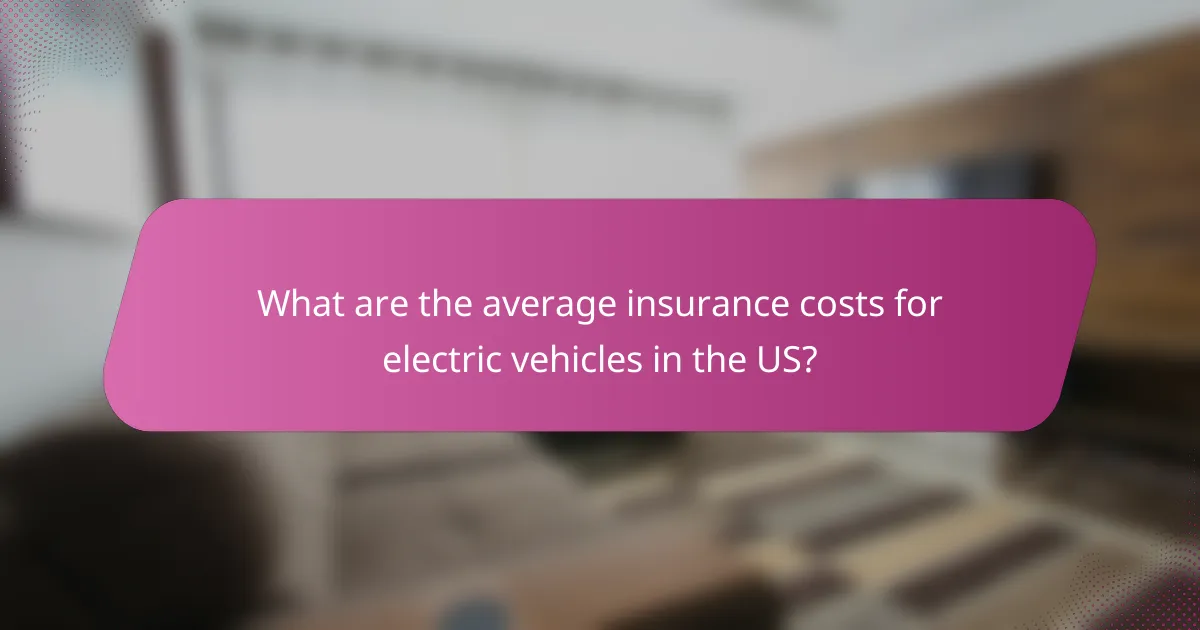
What are the average insurance costs for electric vehicles in the US?
Insurance costs for electric vehicles (EVs) in the US typically range from $1,000 to $2,000 annually, depending on factors like the model, location, and driver profile. EVs may have higher premiums due to their higher repair costs and specialized parts, but some insurance providers offer discounts for eco-friendly vehicles.
Insurance costs for Tesla Model 3
The Tesla Model 3 generally has insurance premiums that range from $1,200 to $1,800 per year. Factors influencing these costs include the vehicle’s value, safety ratings, and the owner’s driving history. Tesla also offers its own insurance program, which may provide competitive rates for Model 3 owners.
When insuring a Tesla Model 3, consider the potential for lower premiums if you install additional safety features or opt for a higher deductible. Some insurers may offer discounts for electric vehicle ownership, which can help offset costs.
Insurance costs for Nissan Leaf
Insurance for the Nissan Leaf usually falls between $900 and $1,500 annually. This range is influenced by the Leaf’s lower market value compared to other EVs, making it more affordable to insure. Additionally, the Leaf’s safety features can lead to further discounts.
To minimize insurance costs for a Nissan Leaf, shop around for quotes from multiple insurers and inquire about any available discounts for electric vehicles. Maintaining a clean driving record can also help in securing lower premiums.
Insurance costs for Chevrolet Bolt
The Chevrolet Bolt’s insurance costs typically range from $1,000 to $1,600 per year. Similar to other EVs, the Bolt’s premiums are affected by its repair costs and safety ratings. The Bolt is often seen as a budget-friendly option, which can reflect positively on insurance rates.
When considering insurance for a Chevrolet Bolt, look for companies that specialize in EV coverage. Additionally, bundling your auto insurance with other policies may yield further savings.
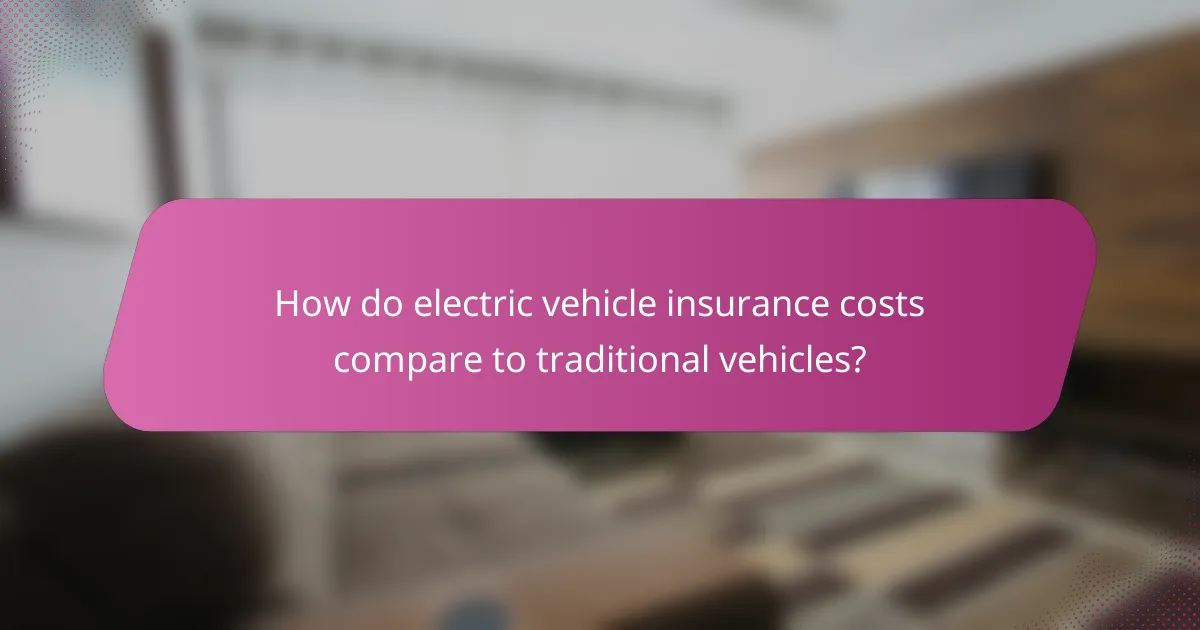
How do electric vehicle insurance costs compare to traditional vehicles?
Electric vehicle insurance costs can be higher than those for traditional vehicles due to factors like repair costs and vehicle value. However, the difference can vary significantly based on the specific model and the insurer’s policies.
Comparison with gasoline cars
Insurance for electric vehicles (EVs) typically ranges from 10% to 30% higher than for gasoline cars. This is largely due to the higher replacement costs of EV components, such as batteries. However, some insurers offer discounts for EVs, recognizing their lower risk of accidents and environmental benefits.
For example, a standard gasoline car might have an annual insurance premium of around $1,200, while an electric vehicle could cost between $1,320 and $1,560. The actual rates depend on various factors, including the driver’s profile and location.
Factors affecting insurance rates
Several factors influence the insurance rates for electric vehicles. The vehicle’s make and model, safety ratings, and repair costs play significant roles. High-end EVs with advanced technology may incur higher premiums due to expensive parts and specialized repair services.
Additionally, the driver’s history, including claims and driving record, will affect rates. Geographic location also matters; urban areas may have higher premiums due to increased accident rates. It’s advisable to shop around and compare quotes from different insurers to find the best coverage and rates for your electric vehicle.

What are the overall expenses of owning an electric vehicle?
The overall expenses of owning an electric vehicle (EV) include the initial purchase price, charging costs, and maintenance expenses. Understanding these costs can help potential buyers make informed decisions about their investment in an EV.
Initial purchase price
The initial purchase price of an electric vehicle can vary significantly based on the model, brand, and features. Generally, EVs tend to have a higher upfront cost compared to traditional gasoline vehicles, often ranging from the low tens of thousands to over fifty thousand USD.
However, many countries offer incentives such as tax credits or rebates that can reduce the effective price. It’s essential to research local programs that may apply to your situation to maximize savings on your EV purchase.
Charging costs
Charging costs for electric vehicles depend on the local electricity rates and the vehicle’s efficiency. On average, charging an EV can cost between 5 to 15 USD for a full charge, translating to about 1 to 4 cents per mile driven.
Home charging is often more economical than using public charging stations, which may have varying fees. Consider installing a home charging station to take advantage of lower electricity rates, especially during off-peak hours.
Maintenance expenses
Maintenance expenses for electric vehicles are generally lower than for traditional vehicles due to fewer moving parts and no need for oil changes. Typical maintenance costs can be around 30 to 50 percent less than those for gasoline vehicles over the lifespan of the car.
However, it’s important to budget for potential battery replacement, which can be a significant expense, typically needed after several years of use. Regular checks on tires, brakes, and software updates are also essential to keep your EV running efficiently.

What incentives are available for electric vehicle owners in the US?
Electric vehicle (EV) owners in the US can benefit from various incentives that help reduce the overall cost of purchasing and owning an EV. These incentives include federal tax credits and state-specific rebates, which can significantly lower the financial burden associated with electric vehicles.
Federal tax credits
The federal government offers tax credits for electric vehicle purchases, which can amount to several thousand dollars depending on the vehicle’s specifications. As of now, eligible EVs can qualify for a tax credit of up to $7,500, but this amount may vary based on the manufacturer’s sales volume and the vehicle’s battery capacity.
To claim the federal tax credit, buyers must file IRS Form 8834 when they file their federal tax return. It’s essential to verify the vehicle’s eligibility, as not all electric models qualify for the full credit. Additionally, the credit is non-refundable, meaning it can only reduce tax liability to zero but won’t result in a refund.
State rebates
Many states offer additional rebates for electric vehicle purchases, which can further reduce the cost. These state rebates vary widely, with some states providing incentives of a few hundred to several thousand dollars. For instance, California offers rebates up to $2,000 for eligible EVs, while other states may have different amounts or even tiered systems based on income.
To take advantage of state rebates, buyers typically need to apply through their state’s energy or transportation department. It’s crucial to check the specific requirements and deadlines, as some programs may have limited funding or specific eligibility criteria. Staying informed about local incentives can maximize savings when purchasing an electric vehicle.
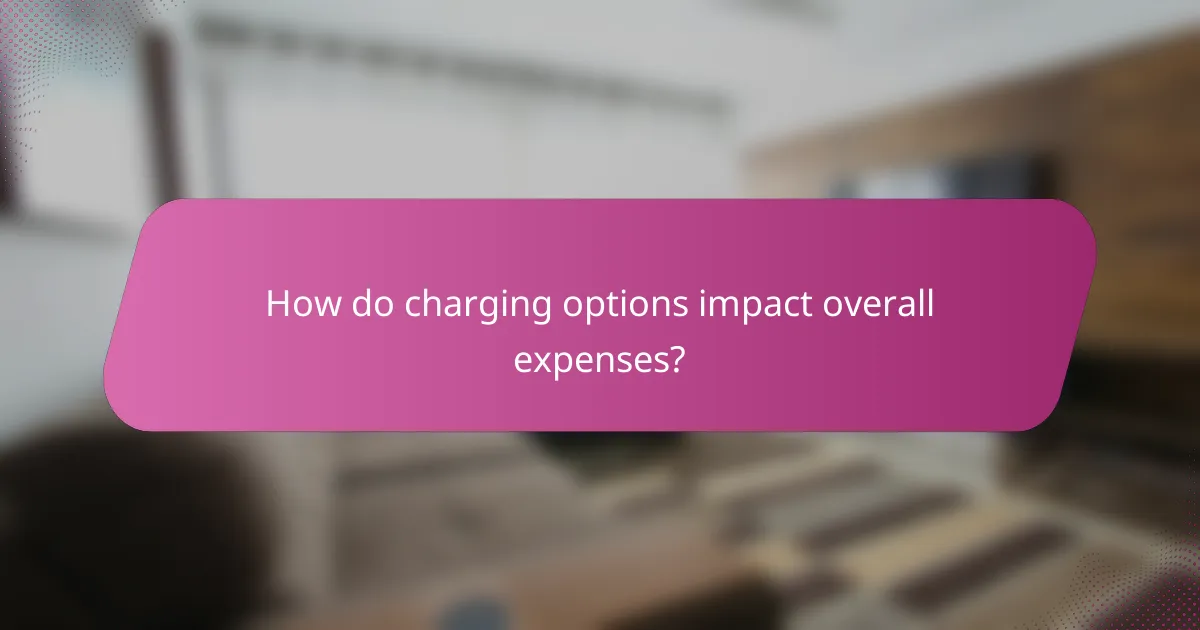
How do charging options impact overall expenses?
Charging options significantly affect the overall expenses of owning an electric vehicle (EV). The costs associated with home charging installations and public charging fees can vary widely, influencing the total cost of ownership.
Home charging installation costs
Installing a home charging station typically involves upfront costs for the equipment and installation. Depending on the type of charger, installation can range from a few hundred to several thousand USD, with Level 2 chargers generally being more expensive than standard outlets.
When considering home charging, factor in potential electrical upgrades needed to support the charger. Homeowners may need to invest in circuit upgrades or additional wiring, which can add to the overall installation cost.
Public charging fees
Public charging fees can vary based on location, charging speed, and network providers. Some stations offer free charging, while others may charge by the hour or per kilowatt-hour, with prices typically ranging from $0.10 to $0.50 per kWh.
It’s essential to consider the convenience of public charging versus home charging. Frequent use of public stations can lead to higher costs, especially if charging during peak hours when rates may be elevated. Always check local charging networks for pricing and membership options that might reduce costs.
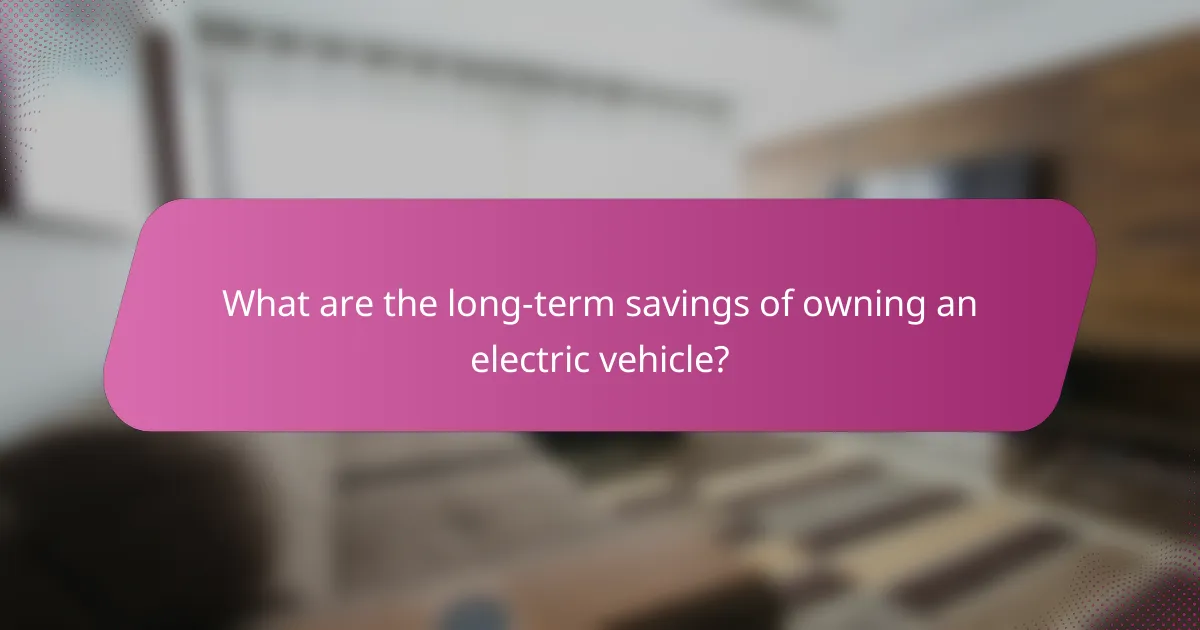
What are the long-term savings of owning an electric vehicle?
Owning an electric vehicle (EV) can lead to significant long-term savings primarily through reduced fuel and maintenance costs. These savings can offset the initial purchase price and contribute to overall financial benefits over the vehicle’s lifespan.
Fuel savings
Electric vehicles typically have lower fuel costs compared to traditional gasoline vehicles. The cost to charge an EV can be significantly less than the price of gasoline, often resulting in savings of hundreds to thousands of dollars annually, depending on driving habits and local electricity rates.
For instance, if electricity costs around $0.13 per kWh, charging an EV could cost about $5 to $7 for a full charge, providing a range of approximately 250 to 300 miles. In contrast, fueling a gasoline vehicle may cost $40 or more for the same distance, depending on fuel prices.
Maintenance savings
Electric vehicles generally require less maintenance than their gasoline counterparts, leading to further savings. EVs have fewer moving parts, which means less wear and tear and lower maintenance costs over time. For example, they do not require oil changes, and brake wear is reduced due to regenerative braking systems.
On average, EV owners can save around 30% on maintenance costs compared to traditional vehicles. This can translate to savings of several hundred dollars each year, depending on the specific model and driving conditions.

